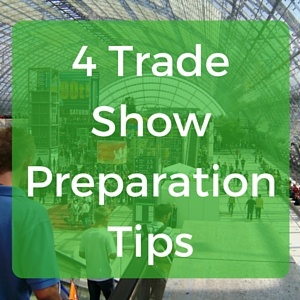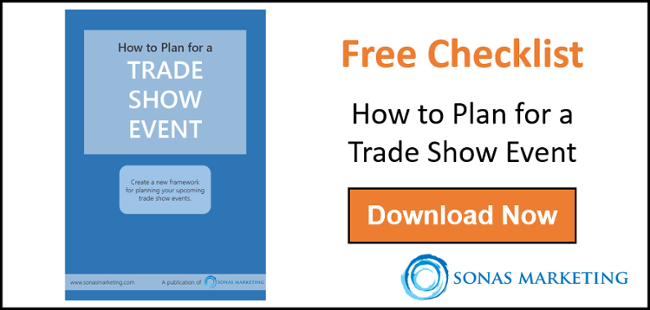"There is only one thing worse than being talked about, and that is not being talked about." -Oscar Wilde
Although Wilde died in 1900, people are still talking about him and his "wildeisms" are still quoted. The goal of every company exhibiting in a trade show is to keep that talk going and translating into business. Trade shows represent huge opportunities to create new relationships, raise brand awareness, and make some noise. In other words, keep people talking!
Exhibiting at a trade show is the quintessential occasion to come face-to-face with qualified prospects for your products, all the while representing a large percentage of your company's marketing budget. So making the most of the time and money invested in exhibiting means carefully avoiding trade show mistakes that sabotage all your efforts.
Planning and getting ready to exhibit at a trade show is hard work, not to mention the actual time spent on your feet engaging with people and potential customers.
With that being said, thoughtful preparations can help you avoid trade show mistakes and pitfalls, and keep everyone talking about you, here are 4 trade show preparation tips to help. 
Make Sure Your Exhibit Actually Communicates What You Do
Try this simple experiment the next time you attend or exhibit at a trade show. Stand in front of each booth you come to for about 15 seconds, read all the signage and collateral information and then determine what that company actually can do for their customers. In many cases you will not be able to correctly determine the company's effectiveness.
What matters most is that you effectively communicate what you bring to the table. Rather than using buzzwords and cutting edge images answer these questions. What problem can you solve? What solutions do you bring to your industry? What help do you give to your customers? How easy it is to use your systems? How much money can you help them save?
Engage With Customers Before The Trade Show
Reach out to customers with the purpose of generating appointments and leads at least six weeks ahead of the event. According to Ken Krogue of InsideSales, you should never go to a trade show where you can't generate more leads than you will need in order to pay for the event before you even get there.
Treat appointments like appointments, set unique, specific, pre-arranged times to meet clients during every spare moment of the trade show. According to FranklinCovey, the largest time management company in the world, people don't forget appointments set at unique or weird times like 10:35 a.m. or 1:05 p.m. Make sure to follow-up immediately if a customer misses the appointment.
Stand Up, Stand Out and Be Ready
Many times exhibitor staff can be seen sitting behind a table. The reasons range from being uniformed, to tired, to simply not knowing how to work at a trade show. Make sure your staff has all the information and training they need to be a valuable asset for your company. Keep track of all the questions that are asked at the events you and your staff attend. Summarize the answers for everyone working the booths or meetings.
Consider having a top-level employee present to make on-the-spot decisions or negotiations. According to the Center for Exhibition Industry Research (CEIR) 72% of visitors say the show itself influences their buying decisions and 76% ask for quotes with 26% ending up signing purchase orders.
Be assertive, sharp and kind. The booth should be clean and tidy, the staff courteous and well-informed. In today's age of social media, one unhappy customer or prospect can derail even your best efforts.
Speak Out and Pitch Your Industry
Make your own opportunities and take advantage of times to speak at trade show events. Invite everyone in your prospect database to come and hear you speak at the show.
If your content and research are good, people, even competitors, will flock to hear you. By providing industry answers and solutions to difficult problems, people will turn to you for help in their businesses.
Pitch your industry, not your products, everyone walks away unhappy if a seminar is just a masquerade for a sales pitch...have faith in yourself, your business, your content and your industry.



